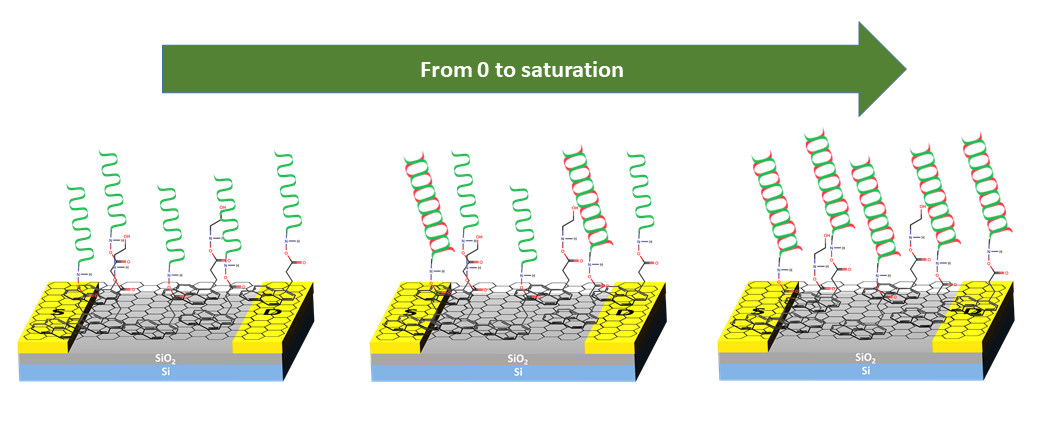Referência:
POCI-01-0145-FEDER-031069
PI: Marta Prado (INL)CO-PI: João Pedro Alpuim (CFUM)
Resumo/Summary:
Portugal, and in particular the north region, is a leading producer of wine in the EU, with one of the highest numbers of DOP and IGPs in Europe, including world-known Port and Douro wines. Among common wine adulteration, the use of different grape varieties from the ones authorized by the PDO, or the use of more than one variety in wines labelled as monovarietal, are one of the issues of higher concern for producers and authorities. DNA based analysis have become a very useful instrument on food and environmental analysis. DNA analysis is of high interest as well for varietal discrimination of grapes, wines, musts, and grape juice, due to the high specificity allowed by the use of DNA sequences, and the possibility of amplifying such DNA markers by PCR and other amplification strategies, and therefore obtaining higher sensitivity. Despite its advantages for grape variety identification, DNA analysis has not been extensively used by control laboratories, due to some drawbacks for their practical implementation. Several developments in the last years are being directed towards the improvement of DNA based analysis in order to simplify, miniaturize and reduce both the time and price of analysis with increased performance, to develop devices and methodology to be effectively used by control laboratories. Among such improvements, several sensors have been developed with promising characteristics, among them, field-effect transistors (FETs) allow to achieve high sensitivity, specificity and rapid measurement without the need of labelling, making those excellent candidates for wine/grape authenticity analysis. Likewise, there has been a strong interest in developing portable point-of-care devices that can be used in resource-limited settings, such as remote regions, farms or cultivars. Several approaches towards micro total analysis system (μTAS, or lab-on-a-chip) have been developed, which provides a significant improvement in performance. However, to our knowledge and despite of their clear advantages, no commercial μTAS are currently available and validated for DNA analysis in wine or food commodities. The main objective of the present proposal is the development, test and in-house validation of a miniaturized DNA sensing device for food authenticity, and in particular for varietal discrimination of grapes, wines, musts, and grape juice in order to ensure the authenticity of wine from Porto and Douro DOP. With this objective the participating teams will combine their expertise for the development of a miniaturized analytical device composed of 3 modules namely: a DNA extraction and purification module, an isothermal DNA amplification module, and a DNA Biosensors based on field-effect transistors (FETs) made using single layer graphene (SLG) for varietal discrimination. The integrated device will be in-house validated with different complex matrixes including grapes, wines, musts, and grape juice.
Palavras chave:
Lab-on-a-chip
Graphene biosensors
DNA analysis
Wine quality control
Parceiros:
- UNIVERSIDADE DO MINHO
- INL (LABORATÓRIO IBÉRICO INTERNACIONAL DE NANOTECNOLOGIA)
Orçamento Global: 203 796, 71€
Investimento UMinho: 43 712,50 €
-
Apoio Financeiro UM
FEDER: 37 155, 63€
OE: 6 556, 87€
Data início: 15/06/2018
Data Fim: 14/06/2022
Financiamento:
FEDER, OE
![]()


